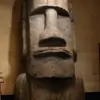Originally posted by: coldbrew
Isn't bhaang that people drink during holi celebrations a form of weed too? In fact, bhaang is known to cause a more intense high than weed. If that isn't problematic there, why is weed? What has SSR smoking weed have anything to do with the case at all? That's just red herring in between the investigation--this opinion is strictly based on this topic. People are posting their opinions that aren't interrelated, a lot of us are on the fence. So there's no need to get all sarcastic like you have an insight beyond what people are posting individually.
Coke, hashish, and other drugs are lethal even in small doses and completely illegal for their repercussions from the bottom level peddlers to the top level consumers. Those are rightfully in a different category.
When Cannabis was criminalized in 1985 (after decades of intense pressure by the U.S. - where it's now mostly decriminalized) after about 3-4,000 years of use - Bhang was exempt because it came from the leaves & seeds without other parts of the plant. States on an individual basis have the right to criminalize or regulate it. Yes, it's traditionally used during Holi.
https://en.wikipedia.org/wiki/Cannabis_in_India
The NDPS maintained the same definition of "cannabis", excluding bhang from its purview:
"cannabis (hemp)" means:
- charas, that is, the separated resin, in whatever form, whether crude or purified, obtained from the cannabis plant and also includes concentrated preparation and resin known as hashish oil or liquid hashish;
- ganja, that is, the flowering or fruiting tops of the cannabis plant (excluding the seeds and leaves when not accompanied by the tops), by whatever name they may be known or designated; and
- any mixture, with or without any neutral material, of any of the above forms of cannabis or any drink prepared therefrom;
— Narcotic Drugs and Psychotropic Substances Act (India), Chapter I, Section 2.iii.
NDPS banned the production and sale of cannabis resin and flowers, but permitted the use of the leaves and seeds [ Ed: BHANG], allowing the states to regulate the latter.
Cultivation of cannabis for industrial purposes such as making industrial hemp or for horticultural use is legal in India. The National Policy on Narcotic Drugs and Psychotropic Substances recognizes cannabis as a source of biomass, fibre, and high-value oil. The Government of India encourages research and cultivation of cannabis with low THC content.
Regional bans on bhang
Although NDPS allows consumption of bhang, various states have their own laws banning or restricting its use. In some states, only authorised dealers are allowed to sell bhang. Some states also have rules about the maximum amount of bhang one person can carry and the minimum age of the buyer.
In Assam, The Assam Ganja and Bhang Prohibition Act, 1958, prohibits sale, purchase, possession and consumption of ganja and bhang
In Maharashtra, Section 66(1)(b) of the Bombay Prohibition (BP) Act, 1949, bans manufacture, possession and consumption of bhang and bhang-containing substances without a license.[40]
On 21 February 2017, Gujarat legalized bhang by removing it from the list of "intoxicating drugs" covered by section 23 of the Gujarat Prohibition Act. Gujarat's Minister of State for Home and Prohibition, Pradipsinh Jadeja, explained, "Bhang is consumed only as prasad of Lord Shiva. The state government has received complaints of misuse of prohibition act against those found drinking bhang. Hence, keeping in view the sentiments of public at large, the government has decided to exempt bhang from the ambit of Gujarat Prohibition Amendment Act. Bhang is less intoxicating as compared to ganja."
Edited by Talis - 5 years ago







































6